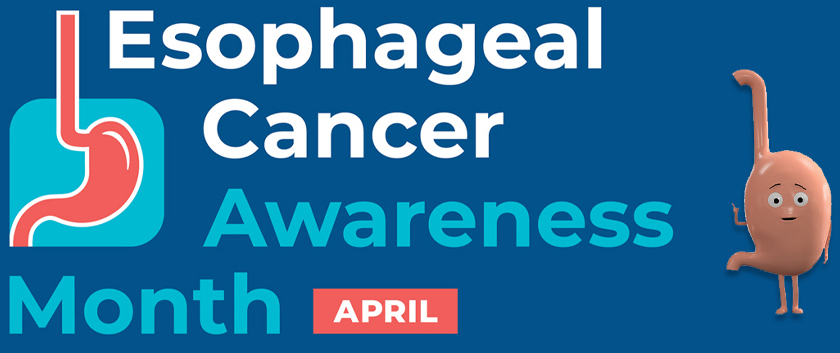
Colorectal Cancer: The Truth About Identification and Prevention
Keeping an eye on your health is paramount to a long and enjoyable life. Tackling tough subject matters regarding health and participating in regular screenings can add years to your life and provide comfort to your family
All to often, we distance ourselves from uncomfortable conversations regarding health. We hear certain words mentioned like cancer and heart disease and we withdraw ourselves from making informed and beneficial life decisions. We look the other way. We hope for the best, but in doing so, we undermine the tools, procedures and people that make those problems manageable. We shrug off prevention because we deny the fact that we are all open to disease and health problems. We exasperate the problem that we should be preventing.
Of the various forms of cancer, colorectal cancer ranks third behind lung and prostate cancer. It is a very common form among men and women equally. There were over 130,000 diagnosis of colorectal cancer cases in the United Stated in 2015 resulting in over 49,000 deaths. With the prevalence of this cancer affecting so many individuals every year, it is important that we understand what colorectal cancer is, how to identify it, how to prevent it and how to treat it.
First of all, it is always an advantage to identify any cancer in its early stages, so even if you are not experiencing any unusual pains, regular screenings are a great place to start. Screenings for colorectal cancer should start once every 10 years beginning at age 50 if you are of regular risk. For people with a family history of colon cancer, the rule of thumb is to start 10 years before the colon cancer was detected in that family member. So for example, if your father was diagnosed with colon cancer at 50, you should start regular screenings for yourself at age 40. If you have any symptoms of colorectal cancer, it is advisable that you talk with your doctor about cancer screenings no matter how young you are. Symptoms of colon cancer can include a change in bowel habits, rectal bleeding, dark stools, or blood in the stool, cramping or abdominal pain, weakness and fatigue or unintended weight loss.
One procedure that doctors use to identify colorectal cancer is called a colonoscopy. This procedure allows your doctor to look at the inner lining of your large intestines using a small camera attached to a snakelike instrument. It is used to evaluate for growths of the colon that could lead to colon cancer, change in bowel habits, inflammatory bowel disease, abdominal pain, bleeding, and anemia.The procedure is very common as around 1.6 million colonoscopies are performed each year. We take this procedure for granted, but it was not until the 1960’s that the colonoscopy procedure was invented. There is about five feet of intestines that your doctor needs to examine for colon cancer screening and before the colonoscopy was developed, doctors were only able to penetrate about 10 inches of colon before experiencing blockages. Today, a doctor can use a colonoscopy to not only view issues within your intestines, he has the ability to remove polyps that may later pose a risk for cancer.
One procedure that doctors use to identify colorectal cancer is called a colonoscopy. This procedure allows your doctor to look at the inner lining of your large intestines using a small camera attached to a snakelike instrument. It is used to evaluate for growths of the colon that could lead to colon cancer, change in bowel habits, inflammatory bowel disease, abdominal pain, bleeding, and anemia.The procedure is very common as around 1.6 million colonoscopies are performed each year. We take this procedure for granted, but it was not until the 1960’s that the colonoscopy procedure was invented. There is about five feet of intestines that your doctor needs to examine for colon cancer screening and before the colonoscopy was developed, doctors were only able to penetrate about 10 inches of colon before experiencing blockages. Today, a doctor can use a colonoscopy to not only view issues within your intestines, he has the ability to remove polyps that may later pose a risk for cancer.
The procedure requires that your intestines be clean, so a small volume preparation (not the gallon you used to have to drink) is necessary. The prep is usually the night prior and involves a limited diet the day prior. This liquid prep facilitates using the bathroom to clean out your system. Most people think that the prep work for the procedure is more uncomfortable than the actual procedure, but it had improved tremendously with the newer preps.
The colonoscopy itself is usually an outpatient procedure and takes about 20 minutes to an hour to complete. You are usually under sedation and during the procedure, while your doctor looks for abnormal occurrences like ulcers, polyps, tumors and inflammation. Many times a doctor may take tissue samples for biopsies. If a polyp is found, the doctor can also remove these during the procedure. After the procedure is complete, there is about 30 minutes of recovery time due to the sedation. The day prior and the day after are usually completely normal, so you only take one day off for the actual procedure.
The doctors at the Center For Digestive Disease have many years of experience providing life saving cancer screenings and treatment options. Contact them today at 936-321-5440 to schedule an appointment for your colorectal cancer screening. You can also learn about the Center For Digestive Disease by going to their website at



